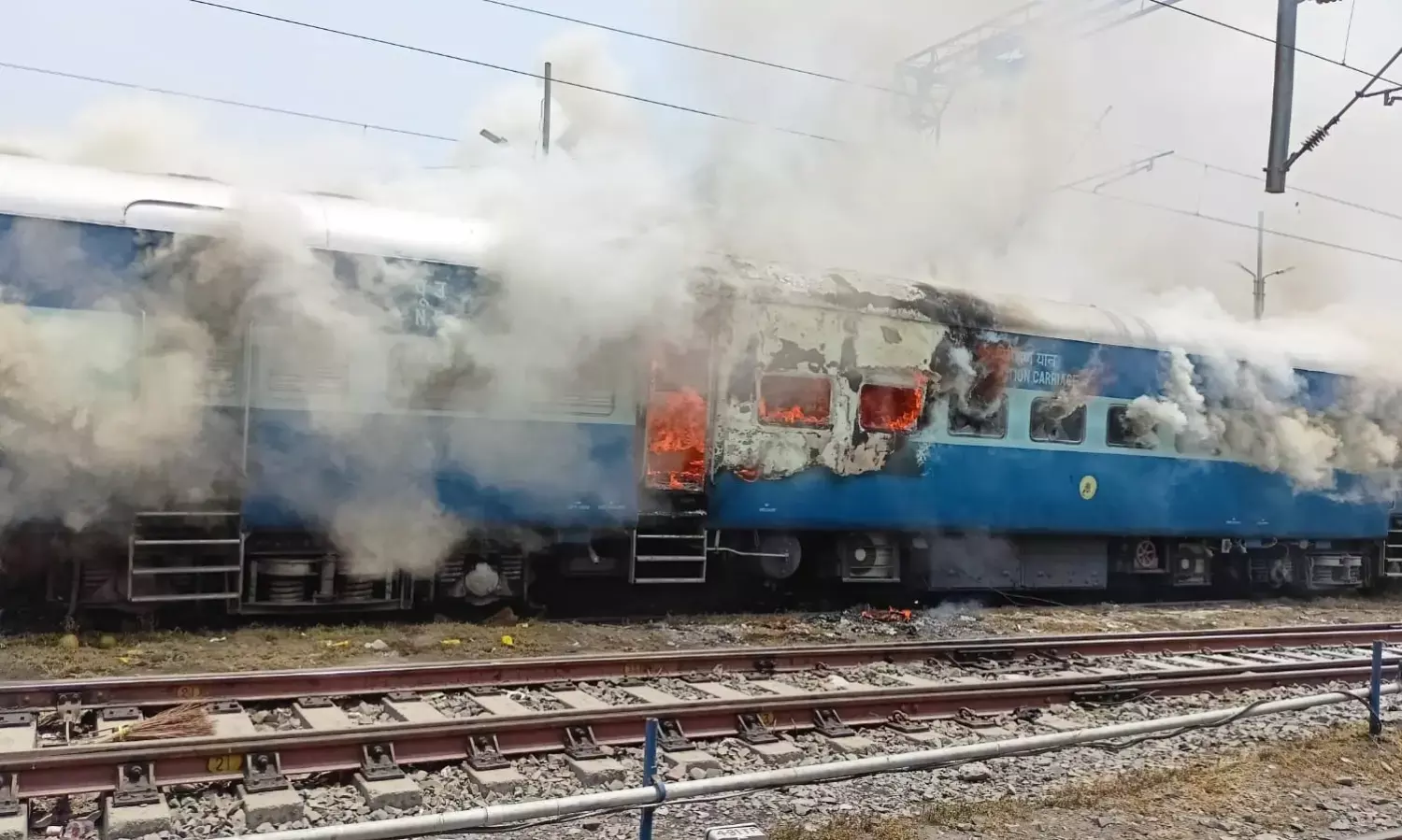Protestors Set Fire to Agnipath Scheme, Veterans Warn of Military Erosion
'No commanding officer would use them for soldiering'

Protests are underway in Bihar and several other states in response to the 'Agnipath' scheme recently rolled out by the Union government. In Bihar, protestors set trains on fire, attacked police and public vehicles, blocked highways and railway tracks, and the convoy of a BJP MLA and the family residence of the Bihar deputy chief minister from the BJP. The protests have spread through Uttar Pradesh, Haryana, Madhya Pradesh, Delhi, Punjab, Uttarakhand and Himachal Pradesh.
This morning the protests spread to Telangana. Large mobs ransacked the Secunderabad railway station and set fire to a number of passenger trains. Services have been disrupted, and food stalls and passenger luggage were reportedly damaged. As police personnel entered the station to disperse the crowd, they were met with protestors pelting stones. According to reports, one protestor was injured after being shot by police.
The military recruitment scheme was announced only on Tuesday by the defence minister, Rajnath Singh. According to the initial plan, mildly revised today in response to the protests, youth between the age of 17.5 and 21 would be eligible for enrolment as 'Agniveers' for a period of four years. At the end of the tenure, they would receive no pension but a lump sum of Rs 11 lakhs partly withdrawn from their pay. Only a quarter of the recruits, whose number is to grow in subsequent years, would be enlisted under permanent commission.
The main concern of the protesters, mostly students, was the truncated recruitment tenure and the lack of pension and healthcare benefits for them and their families. Many students raised concerns about what they would do after the four years were up, and whether they would be at a disadvantage while applying for other jobs.
They said that the government instead of creating jobs was taking away employment opportunities. Many said that they had already worked hard for years and cleared the written exam, but couldn't clear the physical exams as the government had suspended the recruitment rallies for the past two years.
As the protests spread, the government announced a one-time waiver for the current recruitment year and raised the age limit for the scheme to 23. According to a press release, the government said the decision had been taken considering the fact that no recruitment had taken place in the last two years.
A veteran who wished to remain anonymous said, "This scheme will adversely affect the fighting efficiency of the Army and is therefore not good. The aim of the Agnipath scheme is to save money, but there are better ways to save pension money without degrading the last resort of the nation. This scheme will degrade the fighting capability of the defence forces."
He added, "This scheme will create a whole lot of trained people out in the open, available for mercenary use or misuse. That is the way I see this scheme working in the longer run. In the immediate term, it is not going to be beneficial to the Army."
The veteran also confirmed the following figures. The total tenure is 1460 days, of which training is 180 days, annual leave 240 days, casual leave 80 days, the young soldiers cadre on joining their unit 28 days. So the total absence from unit duties is 528 days and the net availability for soldiering is 932 days, or 2.5 years.
He also stood by the popular opinion among veterans that "No commanding officer would use them for soldiering; they'll spend their time on sundry miscellaneous duties. Crisis will become more apparent as 75 per cent will leave at the end of 4 years and this high wastage will be a bi-annual feature. No operationally committed unit can sustain such turbulence and maintain its standards."
While the Union Cabinet maintains that the scheme would provide an opportunity for young people to serve in the regular cadre of the armed forces and also give the military "a much-needed youthful look", several opposition parties have raised concerns.
Congress leader Priyanka Gandhi called for an immediate withdrawal of the scheme, claiming that it was drafted in haste, while senior leader P Chidambaram said that it "carried multiple risks".
In Bihar, the governing JDU asked the Centre to listen to the protesting students and find a way out. In UP, Bahujan Samaj Party leader Mayawati demanded that the Centre roll back the scheme.



